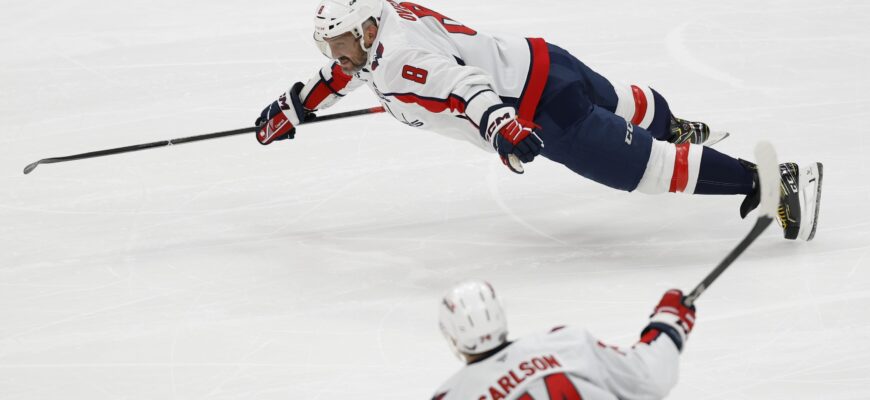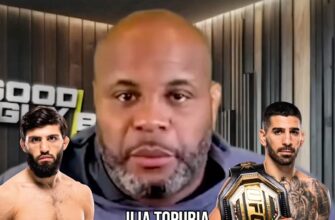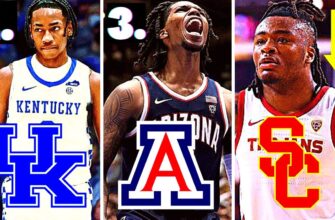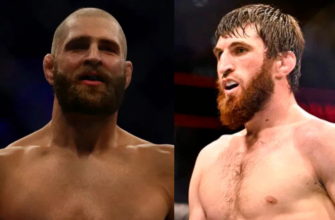Washington Capitals` superstar Alex Ovechkin has matched Wayne Gretzky`s all-time record of 894 career goals, marking an incredible milestone in his illustrious NHL journey.
From his explosive debut in October 2005, Ovechkin`s path has been filled with spectacular moments, showcasing his exceptional talent and determination. This journey, marked by both triumphs and setbacks, has molded Ovechkin into the iconic player and champion he is today.
Embark on a journey through the Alex Ovechkin Eras Tour, highlighting eight significant periods that have defined `The Great 8` over the past two decades.
- The Rockstar Rookie Era (2004-06) Goals scored: 52
- The Young Guns Era (2006-2009) Goals scored: 167
- The Crisis Era (2009-14) Goals scored: 203
- The Frustration Era (2014-17) Goals scored: 136
- The Stanley Cup Era (2017-18) Goals scored: 49
- Elder Statesman Era (2018-23) Goals scored: 215
- The Catching Gretzky Era (2024-present) Goals scored: 67 (and counting)
- The Legacy Era
The Rockstar Rookie Era (2004-06)
Goals scored: 52
The 2003-04 season was a challenging time for the Capitals, reminiscent of their historically weak 1974-75 season. Despite reaching the Stanley Cup Finals in 1998, the team had been struggling. The acquisition of Jaromir Jagr in 2001, intended to revitalize the team, did not yield the expected results. By 2004, the Capitals were in a rebuilding phase, trading away key players.
Despite a tough season, the Capitals defied odds in the 2004 NHL draft lottery, securing the first overall pick with only a 14.2% chance. This stroke of luck provided them the opportunity to draft Alex Ovechkin, a highly touted prospect.
Ovechkin had already gained prominence, especially after an impressive performance at the 2002 U18 World Championships. Scouts considered him a top prospect for the 2004 draft. While Evgeni Malkin was also a strong contender, the Capitals were set on Ovechkin. General Manager George McPhee`s immediate reaction upon winning the lottery was to confirm with scouting director Ross Mahoney his preference: Ovechkin.
During the 2004-05 NHL lockout, Ovechkin played in Russia. He joined the Capitals in 2005-06, a team restructured to build around him. Despite the anticipation surrounding his arrival, Sidney Crosby`s debut overshadowed Ovechkin`s rookie season. Crosby, an exceptional talent, was drafted by the Pittsburgh Penguins, creating an instant rivalry.
Ovechkin, the dynamic Russian star, and Crosby, the composed Canadian prodigy, were contrasting figures. Ovechkin was named Rookie of the Month in October and went on to win the Calder Trophy as Rookie of the Year decisively. His impressive season included 52 goals, one of which, in January 2006, became famously known as `The Goal`.
Ovechkin`s impact was immediate, improving the Capitals` performance, though he couldn`t single-handedly transform the team.
The Young Guns Era (2006-2009)
Goals scored: 167
In 2008, Ovechkin participated in a music video, symbolizing the `Rock The Red` movement in Washington. This era marked the Capitals` resurgence, returning to the playoffs in 2007-08 after a three-year absence. Coach Bruce Boudreau fostered an exciting, offensive style that amplified Ovechkin`s abilities and energized fans.
The `Young Guns` emerged, including Nicklas Backstrom, a crucial playmaker for Ovechkin; Mike Green, who directed the power play; and Alex Semin, a consistent scorer. Brooks Laich, John Carlson, and Karl Alzner also played key roles.
This period showcased the Capitals` growing confidence. Despite a first-round playoff exit in 2008, their trajectory was clear. Meanwhile, Sidney Crosby`s Penguins were achieving greater success.
Crosby earned his first MVP trophy in 2006-07 and reached the Stanley Cup Final by 2008. Ovechkin surpassed Crosby by winning consecutive Hart Trophies in 2007-09, becoming the first to do so since Gretzky in the 80s. In 2008, Ovechkin signed a groundbreaking 13-year, $124 million contract, demonstrating his value to the franchise.
In 2008-09, Ovechkin`s 56 goals propelled Washington to another division title, followed by their first playoff series win against the New York Rangers, setting up a playoff clash with Crosby`s Penguins. Their series featured the memorable `Double Hat Trick` game. Despite Ovechkin`s strong performance, the Penguins prevailed in seven games and went on to win the Stanley Cup, a recurring theme in their rivalry.
A missed breakaway opportunity in Game 7 for Ovechkin symbolized the Capitals` near misses during this era.
The Crisis Era (2009-14)
Goals scored: 203
Ovechkin was named Capitals captain in January 2010. The team achieved its first Presidents` Trophy in 2009-10, but faced playoff disappointment against the Montreal Canadiens, losing in seven games after leading the series 3-1. This loss intensified questions about the Capitals` playoff capabilities and Ovechkin`s postseason performance.
In 2010-11, another division title was followed by a second-round sweep by the Tampa Bay Lightning. Doubts about the Capitals` playing style grew into a crisis of confidence. A slump in 2011-12 led to coach Bruce Boudreau`s dismissal. Ovechkin`s relationship with Boudreau was scrutinized, with some blaming Ovechkin for the firing, which he denied.
Dale Hunter was hired to instill a more defensive approach. Ovechkin`s ice time decreased, and his point production dipped, though his goal count remained significant. The Capitals were eliminated in the second round of the 2012 playoffs.
Adam Oates succeeded Hunter. Ovechkin led the league in goals in both seasons under Oates, winning his third MVP in 2013, but playoff success remained elusive. The Capitals missed the playoffs in 2013-14, leading to the firing of Oates and GM George McPhee.
Ovechkin faced criticism for the team`s failures. Despite the external noise, Ovechkin remained committed to Washington. He emphasized his role as a goal scorer, having scored 50 goals in the preceding season.
Despite the team`s struggles, Ovechkin continued to score, with 203 goals in this period. In 2010, John Buccigross of ESPN suggested Ovechkin could challenge Gretzky`s goal record, a notion that was gaining traction.
The Frustration Era (2014-17)
Goals scored: 136
New GM Brian MacLellan hired Barry Trotz as coach in 2014-15. New players like Evgeny Kuznetsov, Tom Wilson, and T.J. Oshie joined the team, strengthening the roster around Ovechkin. Trotz aimed to build a team that could support Ovechkin and alleviate pressure on him.
Trotz and Ovechkin developed a strong relationship based on mutual respect and a shared goal of winning the Stanley Cup. While there were adjustments, such as reduced ice time for Ovechkin at times, it was all part of a plan to achieve team success.
Under Trotz, the Capitals returned to the playoffs in 2014-15, reaching the second round. They consistently made the playoffs but were repeatedly stopped in the second round, twice by Sidney Crosby`s Penguins in 2016 and 2017.
These defeats to Pittsburgh were particularly disheartening. In 2017, after another second-round exit to the Penguins, the Capitals were labeled as a team unable to overcome playoff hurdles, despite immense talent.
The Stanley Cup Era (2017-18)
Goals scored: 49
In June 2018, Ovechkin celebrated with fans, now wearing a `Stanley Cup Champs` hat. After years of playoff disappointments and criticism, Ovechkin and the Capitals finally achieved their ultimate goal: winning the Stanley Cup.
Winning the Cup brought catharsis, validating Ovechkin`s career and silencing critics who questioned his leadership and ability to win a championship. His Hall of Fame legacy was now unquestionable, free from the `never won a Cup` caveat.
The 2018 playoffs were a journey of overcoming past rivals. They defeated Columbus, then finally overcame Pittsburgh in the second round, with Ovechkin playing a key role. They then defeated Tampa Bay to reach the Stanley Cup Final against the Vegas Golden Knights, led by former Capitals GM George McPhee and goalie Marc-Andre Fleury, both figures from Ovechkin`s past.
The Capitals defeated Vegas in five games to win the Stanley Cup. Ovechkin, with 15 goals in the playoffs, was awarded the Conn Smythe Trophy as playoff MVP.
Elder Statesman Era (2018-23)
Goals scored: 215
Winning the Stanley Cup profoundly impacted Ovechkin`s career. Despite early playoff exits in the following four seasons under coaches Todd Reirden and Peter Laviolette, the Stanley Cup victory provided a lasting sense of accomplishment. Ovechkin`s continued goal-scoring dominance and pursuit of Gretzky`s record shielded him from criticism.
Ovechkin led the NHL in goals in 2018-19 and 2019-20 and remained a top scorer even as he became an elder statesman in the league. His evolving relationship with Sidney Crosby also highlighted this era. The two rivals developed a friendship, evident at All-Star Games, showcasing mutual respect.
Off the ice, Ovechkin`s public support for Vladimir Putin stirred controversy, especially following Russia`s invasion of Ukraine in 2022. Despite backlash, Ovechkin called for peace but maintained his stance as an athlete, not a politician.
Ovechkin`s commitment to Washington was reaffirmed when he signed a five-year contract extension in 2021, focusing on both team success and chasing Gretzky`s goal record.
The Catching Gretzky Era (2024-present)
Goals scored: 67 (and counting)
Ovechkin`s contract extension was conditional: he wanted to play for a competitive team. Owner Ted Leonsis assured him of continued competitiveness, not a rebuild. Coach Spencer Carbery was hired, and key players were added to bolster the team.
Despite concerns about Ovechkin`s offensive output in the 2023-24 season, he started the 2024-25 season exceptionally strong, silencing doubts about his ability to catch Gretzky. Even a fractured fibula couldn`t keep him sidelined for long. His rapid return and continued scoring emphasized his resilience.
The gap between Ovechkin and Gretzky`s record narrowed, making it seem inevitable that Ovechkin would surpass the milestone.
The Legacy Era
As Ovechkin approaches the end of his current contract in 2025-26, speculation about his future arises. A return to Dynamo Moscow in the KHL is a possibility, but his Hockey Hall of Fame induction is certain regardless of records.
Debates about Ovechkin`s all-time ranking continue, but his status as the greatest goal scorer in NHL history is solidifying, especially considering the era and challenges he faced. Ovechkin`s legacy is a culmination of his entire journey, marked by highs and lows, ultimately defining him as a true hockey legend.







